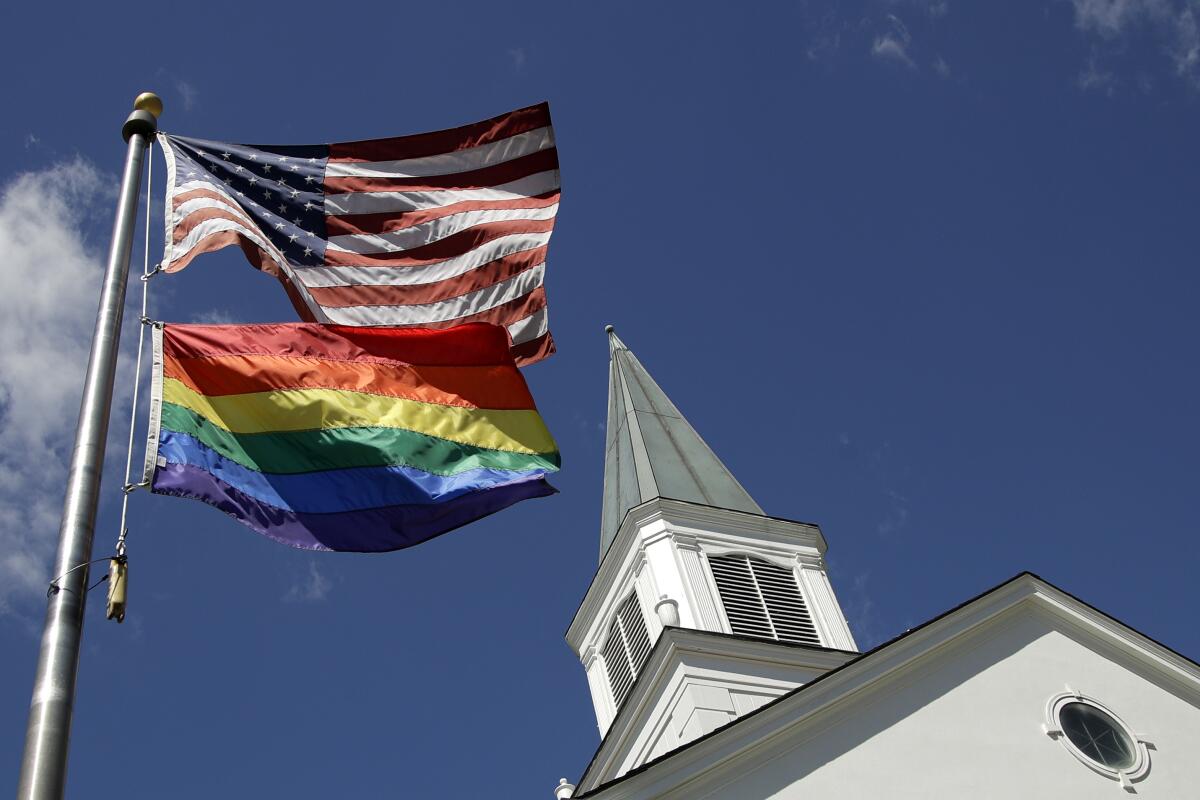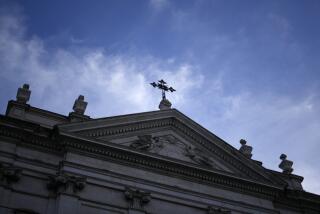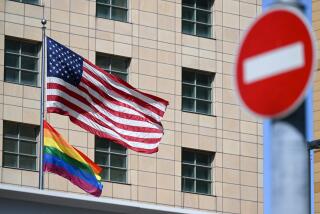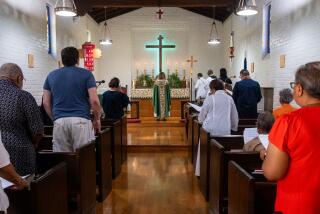United Methodist Church negotiates a likely split over LGBTQ issues

The United Methodist Church has long been riven by bitter divisions between its U.S. and international congregations over whether to allow same-sex marriage and ordain gay clergy.
Now it appears the church — whose 7 million U.S. members make it the nation’s second-largest Protestant denomination — is heading for a permanent split.
On Friday its leaders announced a plan that would lift the LGBTQ restrictions and create a new, more conservative denomination for any congregations that wish to leave. The new denomination, which has yet to be named, would be free to make its own rules.
The bishops who wrote the plan released a statement calling it “the best means to resolve our differences, allowing each part of the church to remain true to its theological understanding, while recognizing the dignity, equality, integrity and respect of every person.”
The deal, which is expected to be approved in May at the next major conference of church leaders, would bring most major branches of Protestantism into agreement on issues of sexuality — and in line with the U.S. Supreme Court and a majority of Americans in their support of LGBTQ rights.
As one of the final holdouts, the Methodist Church carried special weight because of its large membership — 13 million worldwide. At least four U.S. presidents have been Methodist, most recently George W. Bush.
But like most mainstream churches, it has also been losing members in the United States. Helping compensate for that decline is a growing following in Africa and Asia.
Therein lie the roots of the theological conflict. While many U.S. congregations have become more liberal, many abroad have held steadfast to the belief that Christianity does not condone same-sex marriage and relationships.
The plan to split the church would commit $25 million to the new denomination and allow congregations that depart to keep their real estate. Thousands of churches around the world would be expected to take the deal.
The departures are likely to include some U.S. congregations, primarily in the conservative South. The deal would also set aside a total of $2 million to fund other splinter groups that emerge.
“It’s like an amicable divorce,” said the Rev. Mandy McDow of Los Angeles First United Methodist Church, which is downtown and has about 60 congregants, many of them homeless or LGBTQ. “There has been a real split between churches in the west and the rest of the world. Now we don’t have to fight over who gets what — because the church owns so much property — or who is right or wrong.”
For decades, the United Methodist Church had attempted to serve as an umbrella for congregations on both sides of the debate, even as its restrictions remained in place. In 1972, it passed a statement in its Book of Discipline that said “homosexuals no less than heterosexuals are persons of sacred worth,” but added that the church “does not condone the practice of homosexuality and considers this practice incompatible with Christian teaching.”
As gay rights became mainstream in the decades that followed, some congregations declared their support for LGBTQ members, appointed gay ministers and carried out same-sex marriages.
Punishments, directed at individual pastors, were rare but common enough to motivate activism among liberal members. In one of the most high-profile cases, Cincinnati pastor David Meredith was put on trial by church authorities in 2018 for his marriage to a man.
The issue came to a head last February in St. Louis at the church’s general conference, when regional church representatives voted by 53% to uphold the ban on same-sex marriage and reaffirm that “the practice of homosexuality is incompatible with Christian teaching.”
Conservatives also managed to pass rules that would have increased the penalties for pastors who conducted same-sex weddings, mandating a one-year suspension without pay the first time and removal from the clergy the next time.
It became clear at that conference how polarized the church had become and how little room there was for compromise.
The plan announced Friday is the culmination of meetings involving 16 bishops, clergy and lay leaders from the United States, the Philippines, Sierra Leone and elsewhere. Kenneth Feinberg, a mediator best known for negotiating with Sept. 11 attack victims, aided the bishops in drafting their agreement.
“There has been large pressure on the church from the outside to decide on this,” said the Rev. Robert Zilhavar, a leader in the church’s western Pennsylvania conference who has opposed same-sex marriage and ordination of gay ministers. “This is a way for people to move forward without harming one another. I’m prayerful.”
Other large Protestant groups, including Presbyterian Church (USA) and the Evangelical Lutheran Church in America, lifted their restrictions on same-sex marriage and gay ministers over the last decade.
The General Synod of the United Church of Christ has also come out in support of “equal marriage rights for all,” though its individual churches maintain freedom to decide independently on the matter.
The largest Protestant denomination, the evangelical Southern Baptist Convention, with nearly 15 million members, remains opposed to same-sex marriage.
Robert P. Jones, who studies religious trends at the Public Religion Research Institute in Washington, described the likely split as coming “late to the issue” of LGBTQ rights, “as much of the country has essentially come to a consensus.”
In a poll of U.S. Christians last year, his group found 74% of white mainline Protestants — a group of churches with roots in the Northeast and Midwest and that does not include evangelicals — support same-sex marriage, up 20 percentage points since 2011. In the same time among the general population, the jump was 8 percentage points, to 56%.
“The split in the United Methodist Church is due largely to its international reach and is less of a reflection of where Americans in the pews are,” Jones said.
The same poll found that 71% of evangelical Protestants and 51% of Latino Protestants continued to oppose same-sex marriage — but that they were the only groups to do so.
A majority of the more than 51 million U.S. Catholics support same-sex marriage, even though the church does not.
A split in a church as large as the United Methodist would not be unprecedented.
The Episcopal Church saw conservative congregations in the United States and Africa break away after it embraced LGBTQ ministers and marriages and made history 17 years ago by ordaining a gay bishop in New Hampshire.
More to Read
Start your day right
Sign up for Essential California for news, features and recommendations from the L.A. Times and beyond in your inbox six days a week.
You may occasionally receive promotional content from the Los Angeles Times.







